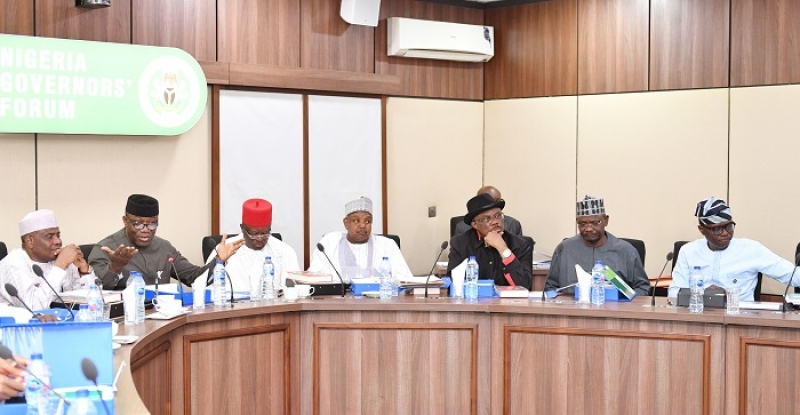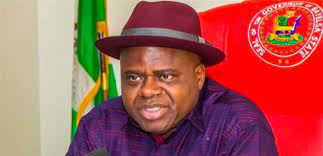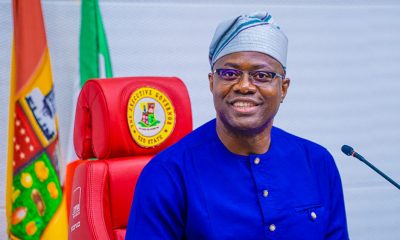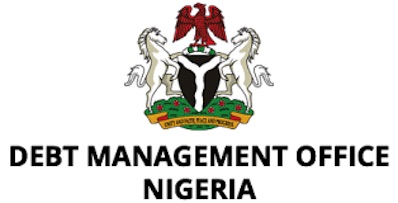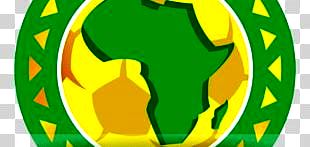COVER
Dwindling Allocation: Salaries, Other Recurrent Items to Suffer – NGF
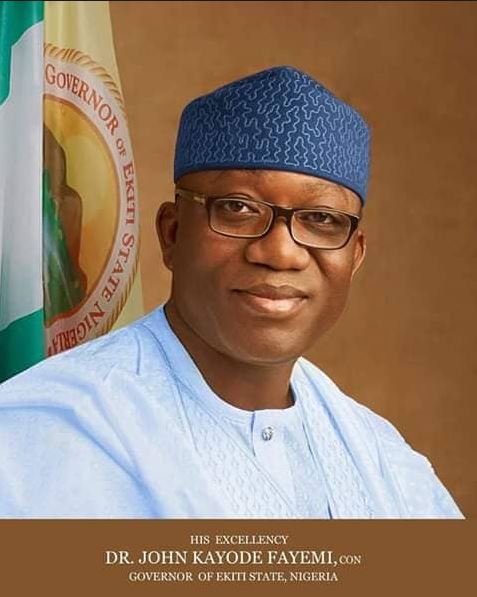
By Joseph Amah, Abuja
The Nigeria Governors’ Forum has lamented that the subsidy on Premium Motor Spirit (petrol), has placed a huge financial burden on the states.
The NGF, which is the umbrella body for the 36 governors of the federation across party lines, made this known in a memo forwarded to the House of Representatives.
The memo is in response to the call for memoranda by the House’ Ad Hoc Committee on the Volume of Fuel Consumed Daily in Nigeria, which is investigating the actual amount of PMS the country consumes daily.
The memo, which was signed by the Head, Legislative Liaison, Peace and Security, NGF, Fatima Usman Katsina, for Chairman of the Forum, was titled ‘Findings on the Volume of Fuel Consumed Daily in Nigeria,’ dated July 1, 2022, and addressed to committee’s Chairman, Abdulkadir Abdullahi.
“Fiscal pressures are growing unsustainably with the PMS subsidy significantly reducing the flow of revenues into the Federation Account. Thirty-five out of 36 states are likely to see transfers from the federation fall (in nominal terms) between 2021 and 2022, with the average decline projected to be about 11 per cent. Most states are already experiencing fiscal stress, with 30 out of 36 states recording fiscal deficits in 2020, including Lagos and every oil-producing state except Akwa Ibom.
“With the projected decline in gross distributable federation revenues in 2022, fiscal deficits and debt burdens will grow even larger and faster. This will mean that transfers from the federation will not be enough to cover even salaries, and certainly not recurrent costs, which are growing in nominal terms.”
The governors referred the House to a November 2021 report by its National Executive Council’s ad hoc committee interfacing with the Nigeria National Petroleum Corporation on the appropriate pricing of PMS in Nigeria, which was chaired by Governor of Kaduna State, Nasir el-Rufai, and had governors of Edo, Jigawa, Ebonyi, Akwa Ibom and Ekiti, as well as the Governor of the Central Bank of Nigeria; Minister of Finance, Budget and National Planning; Accountant-General of the Federation, Group Managing Director of the NNPC and the Permanent Secretary, MBNP.
The memo partly read, “Although the operating environment has significantly worsened since the report was released, with NNPC now consistently reporting zero remittance to the Federation Accountant as profit from joint venture, production sharing contract and miscellaneous operations, the position of the forum remains generally the same.”
The NGF recalled how the report noted that the “federation (FAAC) net oil & gas revenues have been declining since 2019 and are projected to decline significantly in 2022 by between N3bn and up to N4.4bn unless action is taken now.” The memo read, “The following are some of the major findings relating to the volume of fuel consumed in the country:
“Remittances to the Federation Account Allocation Committee have continued to shrink as NNPC recovers shortfall quite arbitrarily from the Federation’s crude oil sales revenue. FAAC deductions for PMS subsidy are above 2019 levels, even without adjusting for reduced purchasing power of the naira due to inflation and FX rate deterioration.
“An analysis of the average monthly PMS consumption by states showed that a third of the country accounts for over 65 per cent consumption of PMS. The analysis showed that the following States of Lagos, Oyo, Ogun, Abuja, Delta, Kano, Kwara, Edo, Rivers, Kaduna, Kebbi and Adamawa accounted for 65 per cent of PMS consumption in the country. Most states with high PMS consumption either have borders with neighbouring countries or are in close proximity, this has been an avenue for smugglers to benefit from profitable arbitrage opportunities in PMS pricing.
“Households directly consume only about 25 per cent of the PMS that is consumed nationally, with the remaining three-quarters being consumed by firms, MDAs, transport operators or smuggled to neighbouring countries where the PMS price is nearly three times what it is in Nigeria; and of the PMS consumed by households, the richest 40 per cent of households account for over three-quarters of the PMS purchased by households, while the poorest 40 per cent of households purchased less than three percent of all PMS sold in Nigeria.
“In the current fiscal regime, remittances to FAAC would continue to shrink as NNPC recovers this shortfall from the Federation as a result of crude oil price recovery.
The report recommended a PMS pricing structure that addresses regional arbitrage and smuggling of PMS and provides additional revenue to the Federation Account. There is a significant market opportunity for additional export revenue streams for Nigeria to be had given the price parity with our neighbouring countries.
“Privatisation of the three government refineries as is, or after their full rehabilitation if affordable and viable, and expediting the licensing procedure for modular refineries will reduce the recurring government expenditure on refinery maintenance and increase the country’s refining capacity.”
The governors also noted that there were also economic risks highlighted in the report. “Fiscal pressures are threatening Nigeria’s recovery, as rising prices continue to push millions into poverty,” they stated.
The memo further read, “Rising prices are pushing millions of Nigerians into poverty. Rising inflation between 2020 and 2021 is expected to have pushed an additional 5-6 million Nigerians into poverty. Food insecurity is increasing in both poor and non-poor households, with some adults skipping meals. Because inflation is high, even if it remains stable, it will continue to push many more Nigerians into poverty.
“With the coming into effect of the Petroleum Industry Act, gross oil & gas revenues could be (much) lower than currently projected because of the new fiscal terms and the earmarking of deductible revenues specified in the PIA, and that could reduce net oil & gas revenues even further.”
The NGF stated that greater accountability and transparency around oil and gas revenues “are the only immediate options for easing the pressure on government finances and maximising socially responsible profit gain.”
N175 Per Litre, Marketers Plan Strike, Queues Worsen
Meanwhile several petrol stations are now dispensing petrol at over N175/litre, higher than the government-approved N165/litre price. This is as oil marketers insist on embarking on strike from next week if the government fails to pay them.
Some outlets in Lagos that sold the commodity at N169/litre last week had to adjust their pumps on Wednesday, as they dispensed PMS to motorists at N175/litre.
Also, queues by motorists at filling stations, which have persisted in Abuja and environs since February this year, gradually resurfaced in parts of Lagos on Wednesday.
Our correspondent also observed that many fuel stations, particularly those belonging to members of the Independent Petroleum Marketers Association of Nigeria, (IPMAN) were shut due to a lack of products to sell to customers.
Gegu Oil, Eterna and Oando stations at the Dutse end of the Kubwa-Zuba Expressway in Abuja, for instance, had remained shut for days for lack of products to sell, despite the heavy queues of motorists in a nearby NNPC retail outlet.
Amidst these concerns, oil marketers under the aegis of Abuja-Suleja IPMAN, stated on Wednesday that their proposed strike would go ahead next week if the government fails to substantially clear the bridging claims for transportation of petrol being owed marketers.
Last week, oil marketers warned that Nigeria could witness “the mother of all queues” soon if the Federal Government fails to pay the 12 months bridging claims being owed operators in the downstream oil sector.
They had also denied being paid N74bn by the Federal Government as bridging claims for the transportation of petroleum products.
The Federal Government through its Nigeria Midstream and Downstream Petroleum Regulatory Authority had said last week that it paid N74bn as bridging claims to oil marketers for the transportation of petroleum products across the country in seven months.
But the Secretary, Abuja-Suleja IPMAN, Mohammed Shuaibu, whose unit covers Abuja, Kogi, Niger and parts of Nasarawa and Kaduna, told our correspondent on Wednesday that though some members had confirmed the receipt of payments, a host of others had yet to receive theirs.
“Few of our members have confirmed receiving alerts, but the majority have not been paid and so the decision to embark on the mother of all strike still stands, except we get our payments,” he stated.
Shuaibu added, “Many independent marketers are closing shop and because of these debts. We cannot continue to fold our hands. We are sorry about the hardship, but the government has to pay us, otherwise we will withdraw our services.”
Reacting to the concerns, the spokesperson, NMDPRA, Kimchi Apollo, earlier told our correspondent that the petrol price had not changed from the approved N165/litre price, as he also stated that efforts were on to settle to bridging claims being owed the marketers.
Meanwhile, there were indications that long queues were beginning to resurface in Lagos State and its environs on Wednesday, as findings showed that filling stations were beginning to sell petrol above N175 per litre.
The Federal Government and oil marketers are yet to come to a compromise on how much a litre of petrol should be sold, and marketers are beginning to sell products at prices not approved by the Nigerian Midstream and Downstream Petroleum Regulatory Authority.
Marketers, however, said they could no longer bank on the Federal Government’s promise to pay the claims, while they continue to run at a loss for selling petrol at N165 per litre.
Marketers had held a similar meeting with the NMDPRA two weeks ago, where they aired their grievances on the high costs of running their petrol stations.
Also, the Depots and Petroleum Products Marketers Association of Nigeria had hinted that it would be impossible for its members to keep prices at N165/litre when the landing costs to their stations were already on the high side.
NLC President Wabba Calls for Fixing of Refineries, Subsidy Removal
As a solution, the President of Nigeria Labour Congress (NLC), Ayuba Wabba has told the federal government to fix the nation’s refineries and get rid of subsidy payments.
He also advocated the participation of private investors in building refineries adding that importation of fuel poses threats to the country.
Wabba revealed these in a presentation made to the House of Representatives ad hoc committee investigating daily PMS consumption in the country.
According to the Labour leader: “We do believe that even if there is subsidy, it cannot be at the level quoted by authorities in the sector. In our document on the oil sector, we have outlined conditions precedent for removing subsidies, if any, including fixing the refineries, creating conditions for private sector participation in the building of refineries, even if they are modular.
“Sadly, we are not aware if any of the terms and conditions we have recommended have been met, several years after. We are nonetheless conscious of the fact that the continuous opaque importation of PMS holds clear and present danger to the country.
“On the other hand, the transparent operation of the importation of PMS has two major advantages. The first advantage is that, knowing the exact volume of PMS the country needs and publicising it will deter further falsification of imports, hopefully,” Wabba said.
COVER
DAILY ASSET Appoints Torough, Editor, Names Eze, Deputy

By Laide Akinboade, Abuja
As part of efforts to reposition the newspaper for optimum corporate performance, the management of Asset Newspapers Limited, Publishers of DAILY ASSET, has announced the appointment of David Torough as the Editor of the Abuja-based national daily.
A statement by the management said the appointments were part of the company’s new strategy to further penetrate the various states in the country and raise its readership and patronage.
“DAILY ASSET is widely acceptable across the country and to maintain our leadership position, we need to increase management presence, hence the need to create new Bureau offices in some locations outside Abuja and Lagos,” the statement quoted the Publisher/ Editor-in-Chief, Dr Cletus Akwaya to have said.
In a statement yesterday, Publisher and Editor-in-Chief of the fast-growing daily, Dr. Cletus Akwaya said the appointment was part of the new strategy to properly situate the paper for better productivity.
“DAILY ASSET has a commitment with the Nigerian people. We are determined to weather the storm and give Nigerian readers a Newspaper that satisfies their yearnings and reading pleasure and we can only do that with the right set of professionals,” the statement said.
Akwaya, a former Commissioner of Information from Benue State said the difficult times being faced by Nigerians posed a great challenge to the media as the people deserved credible information with which to make choices.
“We have a bond with the people, to offer credible information at all times in the best tradition of the Nigerian Press and on this scale of objectivity, truth and fairness, we pledge to remain steadfast no matter the challenges,” Akwaya was quoted to have said.
He said the newspaper will maiantin its daily print run and circulation to all states of the federation and urged advertisers to take advantage of the deep penetration of the Daily Asset brand to send their messages.
Torough, the new Editor has had a steady rise in the Newspaper in the last five years.
A graduate of Mass communication of the Benue State University, Makurdi, Torough joined the company in 2022 as Benue State Correspondent. He was spotted for his brilliance and redeployed to Abuja the following year and promoted to Deputy News Editor. He was subswuently named Deputy Editor of the paper, a position he held until the recent appointment.
Torough has attended several journalistic workshops and trainings to properly equip himself for the task ahead.
The statement also said the Management named Eze Okechukwu as Deputy Editor.
Before his elevation as Deputy Editor, Eze has been Deputy Politics Editor and DAILY ASSET Newspaper correspondent covering the Senate, having joined the organization in 2021.
Born on March 10, 1975, Eze holds a Masters Degree in Mass Communication from the Enugu State University of Science and Technology.
Eze began his journalism career with Daily Star, Enugu and later worked with Daily Trust Newspaper, Abuja as sports reporter.
Aside from his journalistic excellence, he has a great deal of passion for sports.
COVER
Insecurity: Northern Govs, Monarchs Seek Six-month Mining Suspension

From Ngutor Dekera, Kaduna and Aliyu Askira, Kano
Northern governors and traditional rulers yesterday called for the suspension of mining activities across the region for six months, blaming illegal mining for worsening insecurity in many states.The resolution was contained in a communiqué issued after a joint meeting of the Northern States Governors’ Forum and the Northern Traditional Rulers’ Council held at the Sir Kashim Ibrahim House, Kaduna.
The meeting, chaired by the Gombe State Governor and NSGF Chairman, Muhammadu Yahaya, had in attendance the 19 northern governors and chairmen of the 19 states’ traditional councils. The Forum expressed concern over the escalating violence in parts of the North, including the killings and abductions recently recorded in Kebbi, Kwara, Kogi, Niger, Sokoto, Jigawa and Kano states, as well as renewed Boko Haram attacks in Borno and Yobe.“The Forum extends its deepest condolences and solidarity to the governments and good people of the affected states,” the communiqué said, noting that the attacks on schoolchildren and other citizens had become “unacceptable tragedies” that required urgent collective action.It commended President Bola Tinubu for what it described as the Federal Government’s “firm response” to recent abductions and insurgency threats, especially the rescue of some abducted pupils.The governors also saluted security agencies for their sacrifices on the frontlines.“We resolved to renew our support for every step taken by the President and Commander-in-Chief to take the fight to insurgents’ enclaves in order to end the criminality,” the Forum stated.A major highlight of the meeting was the North’s renewed push for the establishment of state police, with governors and traditional rulers insisting that decentralised policing had become inevitable.“The Forum reaffirms its wholehearted support and commitment to the establishment of state police,” the communiqué added, urging federal and state lawmakers from the region to “expedite action for its actualisation.”On illegal mining, the governors said criminal mining networks were fuelling violence and providing resources for armed groups.As a corrective measure, they asked Tinubu to direct the Minister of Solid Minerals to impose a six-month suspension of mining activities in order to allow for a full audit and revalidation of licences.“The Forum observed that illegal mining has become a major contributory factor to the security crises in Northern Nigeria. “We strongly recommend a suspension of mining exploration for six months to allow proper audit and to arrest the menace of artisanal illegal mining,” it said.To strengthen the fight against insecurity, the governors also announced the creation of a regional Security Trust Fund.Under the proposed arrangement, each state and its local governments will contribute ₦1bn monthly, to be deducted at source under an agreed framework.They said the fund would help provide sustainable financing for joint operations, intelligence-driven interventions and coordinated security responses across the region.At the end of the meeting, the Forum reaffirmed its commitment to unity and collective responsibility.“Only through unity, peer review and cooperation can we overcome the pressing challenges before us,” it declared.The Forum agreed to reconvene on a date to be announced.Meanwhile, Nigeria’s worsening security crisis took a grim turn on Monday as bandits launched fresh attacks in Kano State, abducting 25 villagers, even as the Federal Government raced to secure the release of more than 300 Catholic school children kidnapped in Niger State.In the early hours of Monday, armed bandits invaded Unguwar Tsamiya—popularly called Dabawa—in Shanono Local Government Area of Kano State, whisking away nine men and two women after shooting into the air and assaulting residents. The attackers also rustled two cows.A resident lamented the community’s helplessness: “We cannot do otherwise; most of us cannot leave because we have nowhere to go. This is our place, our land and everything is here.”The assault came less than 24 hours after a similar attack on Yan Kamaye in Tsanyawa LGA, a community along the volatile Katsina border.In Niger State, National Security Adviser Nuhu Ribadu has assured distraught families of St. Mary’s Co-Education School, Kontagora that the more than 300 students and staff abducted on November 21 will return home “soon.” Ribadu, who led a high-level federal delegation to the school on Monday, said the abductees are safe, though he offered no specifics on their location or the status of rescue operations.According to Daniel Atori, spokesman for the Catholic bishop overseeing the school, the NSA reassured officials: “The children are where they are and will come back safely.”The St. Mary’s attack is part of a worrying resurgence of mass kidnappings reminiscent of the 2014 Chibok schoolgirls’ abduction. Security analysts warn that banditry has evolved into a “structured, profit-seeking industry,” with hundreds of Nigerians abducted in November alone.The Kontagora school abduction occurred the same week 25 girls were kidnapped in Kebbi State—victims who authorities say have since been rescued through “non-kinetic” means. About 50 of the St. Mary’s hostages have also managed to escape.Ribadu’s delegation, which included the Minister of Humanitarian Affairs and the Director-General of the Department of State Services (DSS), reaffirmed the government’s commitment to securing the freedom of all abducted citizens.As communities from Kano to Niger continue to bear the brunt of these violent incursions, the escalating spate of kidnappings underscores the urgent national demand for a more decisive and coordinated security response.COVER
Abacha Loot Probe: Malami Faces EFCC Panel Daily in December
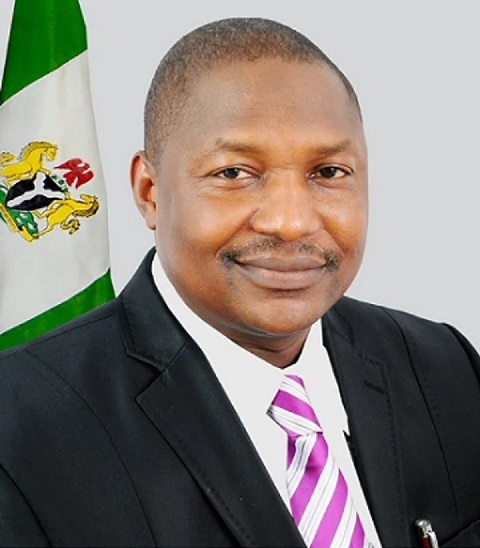
By David Torough, Abuja
The Economic and Financial Crimes Commission (EFCC) said former Attorney‑General of the Federation and Minister of Justice, Abubakar Malami, will face a team of interrogators at its office daily throughout December.A credible source in the EFCC said on Monday that the daily appearance was part of an ongoing investigation into the whereabouts of an alleged 490 million dollars Abacha loot secured through a Mutual Legal Assistance (MLAT) request.
The source said that Malami, who was summoned for interrogation by the EFCC on Saturday, was barred from leaving Nigeria for the next one month.According to the source, one of the conditions for his release on Saturday was that he should report daily to the EFCC Headquarters in Abuja for further interrogation.The source said Malami would have to appear daily at the anti-graft office due to the volume of the investigation and the seriousness of the charges against him.”We seized his passport, it is the normal routine during investigation, but he has to report at the EFCC headquarters in Abuja every day for the next month.”He will be reporting for further investigation throughout December.”He will be reporting every day, starting from Dec. 1st to Dec. 31st.He will appear before the team of investigators for the entire month of December.”He will be reporting to EFCC for investigation for the period because of the volume of the investigation and the seriousness of the charges against him,” the source added.According to the source, a fact sheet on the former minister revealed that Malami had several issues to clarify with the EFCC within the coming weeks.“We have asked him to explain the whereabouts of the $490 million Abacha loot secured through MLAT.“We didn’t say he stole money, but he should account for the loot. This is one of the issues he will clarify to our investigators.”The commission cited the large volume of documents he must review and the need for extensive interviews as reasons for seizing his passport.The source said EFCC would not engage in a war of words but would release its findings after a thorough investigation.Malami, in a statement by his media aide, Mohammed Doka, on Monday in Abuja, however, described the EFCC investigation as a political witch‑hunt.He confirmed he honored an EFCC invitation on Nov. 28, describing the engagement as fruitful and expressing confidence that the probe would vindicate him.Malami described the EFCC’s allegations as baseless, illogical and devoid of substance, insisting they collapse under factual scrutiny.
